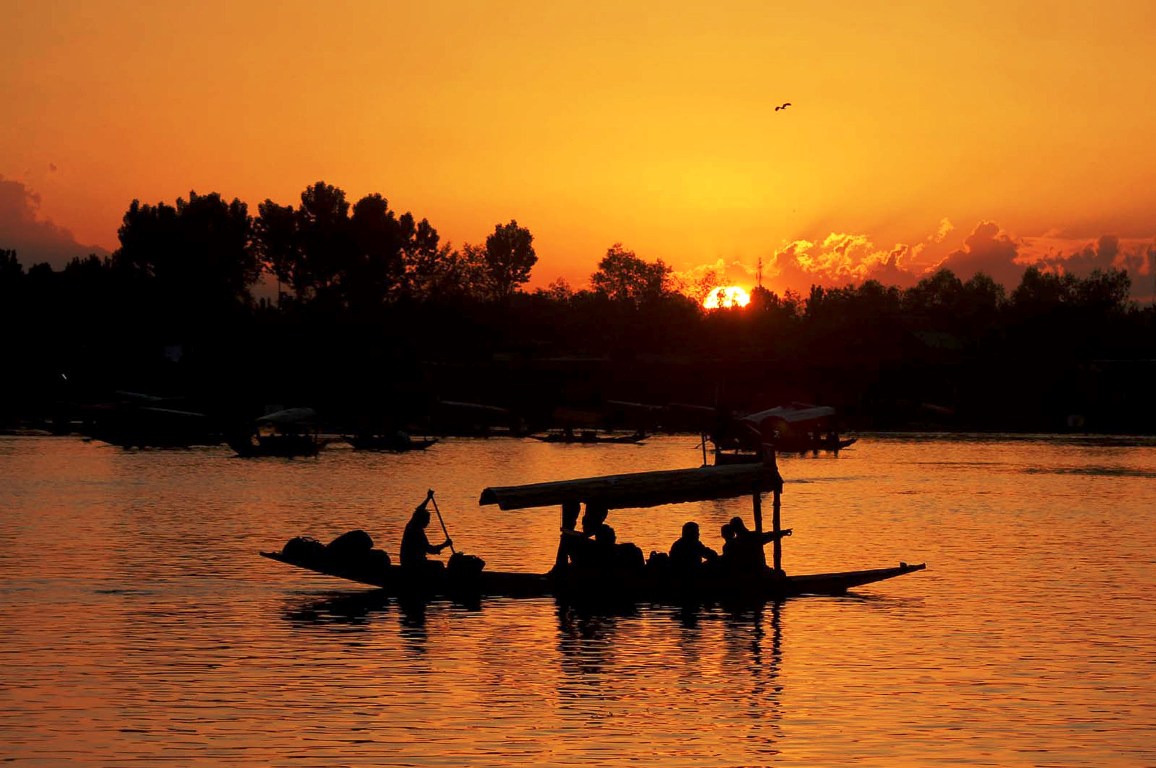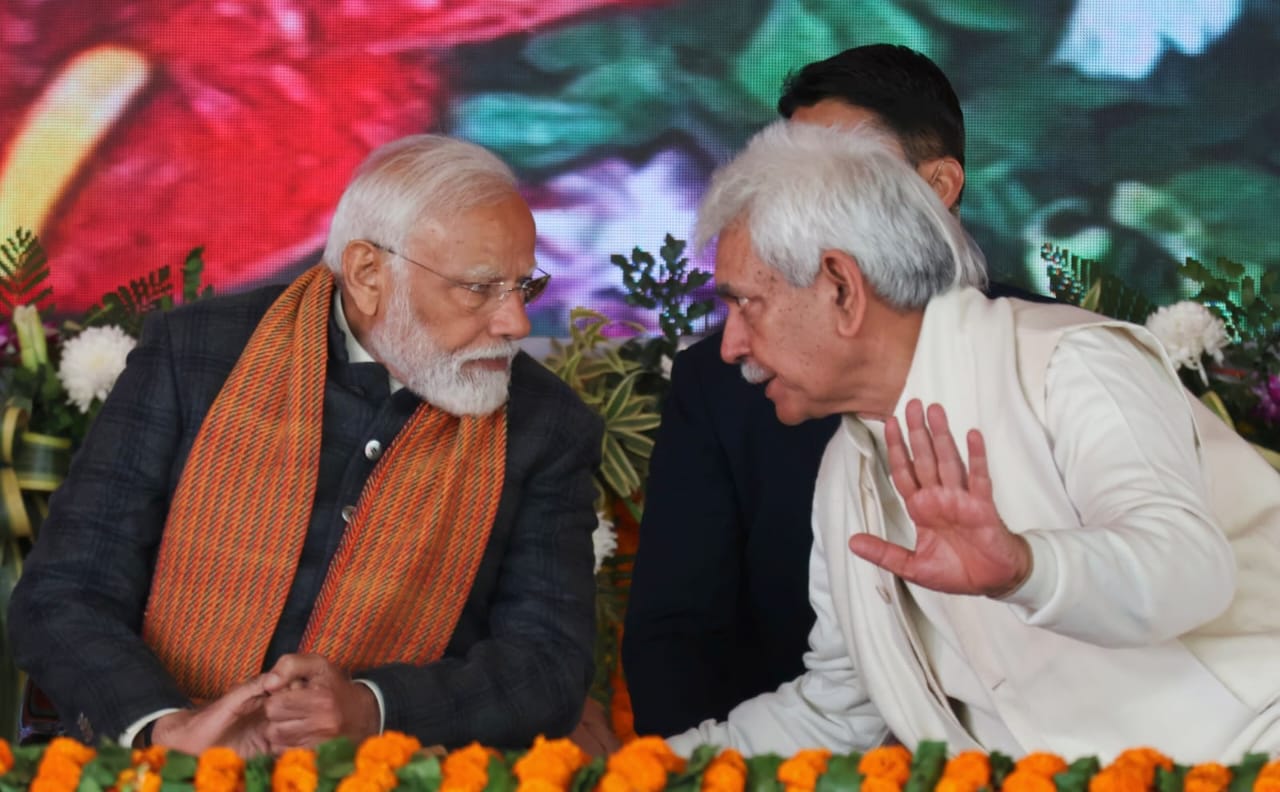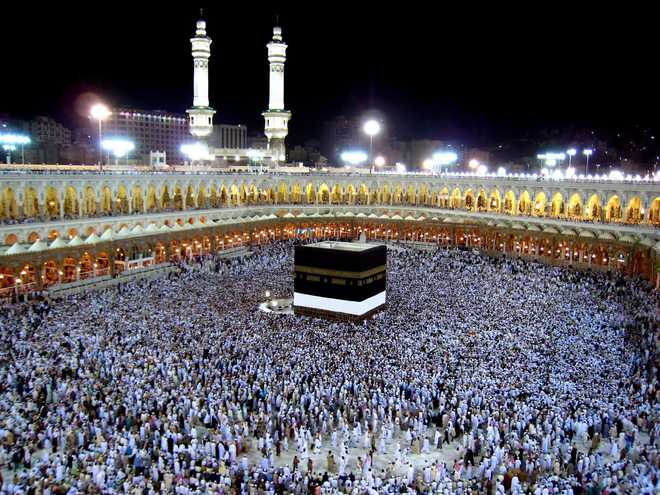ISRAEL

Indian scientist and right-wing political commentator Anand Ranganathan sparked controversy by advocating for an Israel-like solution in Kashmir during The Samosa Caucus Podcast. Joined by co-panellists Abhijit Iyer-Mitra, Sushant Sareen, and Tehseen Poonawalla, Ranganathan criticised India’s handling of Kashmir, arguing that previous policies have failed, especially concerning the rehabilitation of “700,000 displaced Kashmiri Hindus”. He suggested that adopting Israel’s strategies, including settlements and strong anti-terrorism measures, would be more effective. He said every penny that tourists spend in Kashmir goes to “terrorists”. Ranganathan’s comments received significant backlash, with many accusing him of advocating for genocide. However, some right-wing supporters defended Ranganathan. Aditya Raj Kaul and Nupur J Sharma expressed solidarity with him, arguing that India should learn from Israel to combat terrorism. Copying Israel model for Kashmir has been cropping up occasionally with even sections within IFS also supporting the idea. “We already have a model in the world,” IFS officer Sandeep Chakravorty was caught on camera explicitly citing Israeli settlements as an inspiration in November 2019. “If the Israeli people can do it, we can also do it.”
In fiscal 2024, ending March, the Jammu and Kashmir Power Corporation Limited purchased 20,950.58 million units of energy worth Rs 9,256.62 crore.
BABA NAGRI

In comparison to last year, it was an impressive gathering at Wangat. The Baba Nagri forest shrine overlooking the Kangan valley saw tens of thousands of colourful worshippers last week, with men donning vibrant attires and henna-dyed beards. Devotees, mostly from Kashmir’s nomadic pastoral community, believe their wishes are granted at the 19th-century shrine of Mian Nizamuddin Kiyanwi. The shrine offers free meals year-round and holds deep ties to Sufism. Despite the region’s political strife, the shrine provides a peaceful retreat. This year’s gathering was impressive as the Sajada Nasheen of the shrine; Mian Altaf Ahmad was elected to the Lok Sabha from the Anantnag-Rajouri constituency by a huge margin because his followers voted for him. Mian is a political leader and spiritual guide to the Gujjar and Bakerwal communities.
In Jammu Kashmir, 68 per cent of the candidates in the five Lok Sabha seats polled received less than 34,788 None Of The Above (NOTA) votes.
LADAKH

Mohammad Hanifa Jan, the newly elected Member of Parliament from Ladakh, made headlines with high-profile meetings in Delhi following his historic win by 27,862 votes. Accompanied by Chief Executive Councillor Jaffer Akhoon, Hanifa met with National Conference (NC) vice-president Omar Abdullah, sparking speculation about his potential return to the NC. Hanifa and the entire Kargil unit had previously resigned from the NC in protest against the party’s support for a Buddhist candidate from Leh. The discussions were reportedly constructive, focusing on Ladakh’s political future. Later, Hanifa met with Congress President Mallikarjun Kharge, highlighting his national political significance. He also met Agha Mehdi Mehdavipour, the representative of the Supreme Leader of Iran in India, emphasising cultural and religious ties important to Ladakh. Hanifa’s victory over Tsering Namgyal of the INC and Tashi Gyalson of the BJP is seen as a significant milestone, reflecting strong support for change in the region.
Jammu and Kashmir granted 1750 Kanal 17 Marla (87.54 Ha) of land for NHPC’s Kiru Hydroelectric Project in the village Galhar Bhata Kishtwar.
DAL LAKE

Two tourists were arrested for consuming alcohol during a shikara ride on Srinagar’s Dal Lake after a viral video sparked public outrage. The video showed tourists drinking on a traditional wooden boat, violating local laws against public alcohol consumption. The incident drew sharp criticism from local authorities, civil society, and religious leaders, who viewed it as an affront to Kashmir’s cultural and religious values. In response, shikara drivers installed signboards prohibiting drinking and called for strict enforcement of the laws. The Muttahida Majlis-e-Ulama urged vigilance to maintain the sanctity of public spaces. This incident has prompted increased efforts to ensure such behaviour does not recur, preserving the cultural and religious ethos of the region.
Jammu and Kashmir approved the transfer of 2025 Kanals and 3 Marlas of land for development of Industrial Estates in Watalpora (55 Kanals), BK Pora (85 Kanals 5 Marlas) Budgam; Brah Tehsil Shangus (633 Kanal 5 Marlas), Hassan Noor, Pahalgam (119 Kanal), VeeriBijbehara (101 Kanals 2 Marlas), Nanil Aung (100 Kanals), Ranbirpora, East Mattan (223 Kanals 5 Marlas) in Anantnag; Berthipora Keller (55 Kanals 13 Marlas), Melhura&Zainapora (152 Kanals) in Shopian district and Reasi districts: and 500 Kanals 13 Marlas at village Nambal, district Reasi.
SRINAGAR
The groundbreaking exhibition on architectural epigraphy in Kashmir was held at the Kashmir Arts Emporium in Srinagar. It represents the region’s most extensive effort to document, translate, and map historical writings found on its buildings. Led by author-architect, Dr Hakim Sameer Hamdani with a year-long grant from the Barakat Trust in London, and in collaboration with the Islamic University of Science and Technology in Awantipora, the exhibition featured detailed drawings, images, and translations of carvings, engravings, and paintings. This exhibition marks the first open display of calligraphic inscriptions on historic buildings such as khanqahs, mosques, temples, shrines, and mausoleums. The project, led by principal investigator Mehran Qureshi, shed light on inscriptions spanning four centuries, starting with the establishment of Sultanate rule in the 14th century. These texts, inscribed on significant buildings, served as sources of spiritual, historical, and political significance, reflecting Kashmir’s unique Persianate cultural landscape. Hamdani insisted that many of these inscriptions have been lost over time due to the reuse of building materials, fires, and weathering. The exhibition was aimed at reviving these lost treasures through documentation, translations, photographs, and recreated drawings, offering a rare glimpse into Kashmir’s rich epigraphic heritage and its historical and cultural depth.
MUMBAI
Director Ahmed Khan efficiently manages the complex logistics of filming the comedy Welcome to the Jungle with its ensemble cast, including Akshay Kumar and Suniel Shetty. After completing major schedules in Mumbai, the cast of 34 actors will proceed to Kashmir for a four-week shoot featuring specially designed action sequences against the scenic backdrops of glaciers and forests. The shoot will then move to an international location, likely the UK or UAE, for its final leg in September. Produced by Firoz A Nadiadwallah, the comedy is set for a Christmas 2024 release, with a subplot involving police officers tracking a notorious criminal.
JAMMU

The government dismissed four employees, including two policemen, a school teacher, and a Jal Shakti Department worker, for alleged anti-national activities. Abdul Rehman Dar, a police constable from Tral, was found transporting illegal arms and aiding militants. Another constable, Ghulam Rasool Bhat, also from Tral, supplied arms to militants via an underground network. Shabeer Ahmad Wani, a teacher from Kulgam, was an active member of the proscribed separatist group Jamaat-e-Islami, inciting violence and aiding terrorist activities. Anayatullah Shah Pirzada, a Jal Shakti Department lineman from Baramulla, supported the Al-Badr Mujahideen outfit, facilitating communication and supplying materials. The dismissals were executed under Lt Governor Manoj Sinha’s zero-tolerance policy towards anti-national elements, with sufficient evidence negating the need for inquiries.
KASHMIR
The crowded Kher Bhawani Mela apart, the Kashmiri Pandits dominated the news last week on various fronts. In the just concluded Lok Sabha elections, 72 per cent of the migrant votes cast in special booths in Jammu, Udhampur, and Delhi favoured Altaf Bukhari-led Apni Party (AP) and Sajad Lone-led People’s Conference (PC). Out of 23,515 migrant votes, 16,968 supported AP and PC. In Pulwama, almost 200 migrant Kashmiri Pandits returned to Murren to worship Goddess Parvati. The event was co-hosted by resident Muslims. In Verinag, a dispute between two neighbours – one of them a Kashmir Pandit, were in dispute and its video triggered subjective reportage that the Kashmiri Hindu family is facing violent hostility after building a home in Verinag. The investigations by residents and the administration revealed that it was a normal dispute over use of land and lacked a communal angle. The issue was resolved amicably by the community.
PULWAMA
Imtiyaz Ahmad Pala, 38, died in police custody, with his family alleging he was tortured. Police unofficially denied this, stating his condition worsened during questioning related to a drug case. Pala, an electrician and sole breadwinner for his family, was taken by security personnel on June 2. His family reported him missing and, after days of searching, were given conflicting options by the police regarding his charges and body. His father-in-law recounted seeing Pala’s injuries, suggesting severe torture. This incident sparked demands for a judicial probe by the National Conference and PDP. “During his frisking, a heroin-like substance was recovered from his trouser pocket. During questioning, the youth admitted that he was on his way to meet some foreign terrorists operating in Pulwama,” police said in a statement. “Subsequently, a case was registered in the Litter police station of Pulwama district under Sections 8 and 21 of the Narcotic Drugs and Psychotropic Substances Act.” Now a magisterial enquiry is looking into the case.
JAMMU KASHMIR
The Jammu and Kashmir Board of School Education (BOSE) declared the tenth class results. The scant information available on the result gazettes suggests that of the 146136 students enrolled, 115816 qualified which makes a success rate of 79.25 per cent. Girls, as usual, outsmarted boys with 81.10 per cent in comparison to the boy’s pass percentage of 77.33 per cent. Interestingly, 146242 had appeared in Hindu (Really) and only 99896 in Urdu. The BOSE took the alibi of suicide attempts by unsuccessful candidates to withhold a lot of information that would deconstruct the functioning of the school education sector. The state-run education set-up is performing poorly and the two incidents of suicides have given the government a tool not to reveal the key facts that are usually routine in every part of the world.














